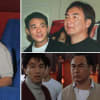Workers’ Party’s idea of unemployment insurance to help retrenched older workers has ‘serious downsides’: Josephine Teo
SINGAPORE — The Government’s current approach in providing employment support for mid-career workers who have lost their jobs is "more sustainable" than unemployment insurance, Manpower Minister Josephine Teo said.

Manpower Minister Josephine Teo (right) said that the Government's programmes to support mid-career workers have seen results and there is no need for them to have unemployment insurance as suggested by Workers' Party's chairperson Sylvia Lim (left).

Quiz of the week
How well do you know the news? Test your knowledge.
SINGAPORE — The Government’s current approach in providing employment support for mid-career workers who have lost their jobs is "more sustainable" than unemployment insurance, Manpower Minister Josephine Teo said.
She was responding to a suggestion raised by Ms Sylvia Lim, Member of Parliament for Aljunied Group Representation Constituency and chairperson of Workers' Party, during a Budget debate on Wednesday (Feb 26).
Mrs Teo said that the Government will “keep an open mind” on unemployment insurance, but pointed out that there are serious downsides to having such a provision. These include reducing workers’ motivation to find work as well as decreasing the willingness of employers to pay retrenchment benefits.
It is not the first time Ms Lim has raised the idea of introducing unemployment insurance for the workforce here. The opposition party had proposed the idea in its manifesto as early as the General Election in 2011, and Ms Lim brought it up again during the Budget debate in 2016.
Unemployment insurance, also known as redundancy insurance, aims to better protect workers whose jobs may become redundant — by ensuring that those who lose their jobs could get a payout.
In 2016, Ms Lim suggested that workers and employers could contribute a small percentage of the salaries of employees to a fund, which would be used to finance these payouts.
In raising the proposal again on Wednesday, Ms Lim said that the Government would need to reassess its approach periodically as the economy evolves.
“Today’s economic climate illustrates how such insurance could provide a stabiliser to workers, to soften the cliff-edge that they face with job disruption.
“If the anxiety of citizens is not taken seriously enough, the door to populism and nativism will widen,” she cautioned.
In response, Mrs Teo said that countries that provide unemployment insurance usually have persistently high unemployment, which is unlike the situation in Singapore.
“Willingness to pay for unemployment insurance is not the same (here) because most people do not expect to need it and they also have other buffers, for example, a working spouse or child,” she said.
Besides, there are government programmes such as Adapt and Grow and SkillsFuture, which are there to help workers retrain, pick up new skills or upskill themselves.
“This approach has the full support of unions and employers, which other countries find harder to do,” Mrs Teo said.
However, Ms Lim said that feedback from the ground seemed to suggest that mid-career professionals tapping these programmes still face difficulty finding jobs after some time.
“How confident is the Government, moving forward, that you will be able to handle and find solutions for everyone who applied under those schemes,” Ms Lim asked.
Mrs Teo then referred Ms Lim to a Ministry of Manpower report released last month, which showed that employment outcomes of Singapore citizens have been positive over the decade.
“We don’t take the improved employment outcomes of our citizens for granted. It is not a given. We have to work very hard for it,” she said.
Mrs Teo highlighted how the Government helps mid-career workers who lose their jobs:
Help businesses sustain the momentum of job creation
Maintain the sense of motivation among workers to keep upskilling
Keep promoting fair employment practices to employers
“Will there be individuals who still find difficulty? I acknowledge there will always be,” Mrs Teo said.
One significant barrier, over and above the lack of funds for people to reskill themselves, is the sense of unfamiliarity among workers when venturing into new sectors, she said.
The Government will need to continue supporting reskilling and job creation efforts.
















